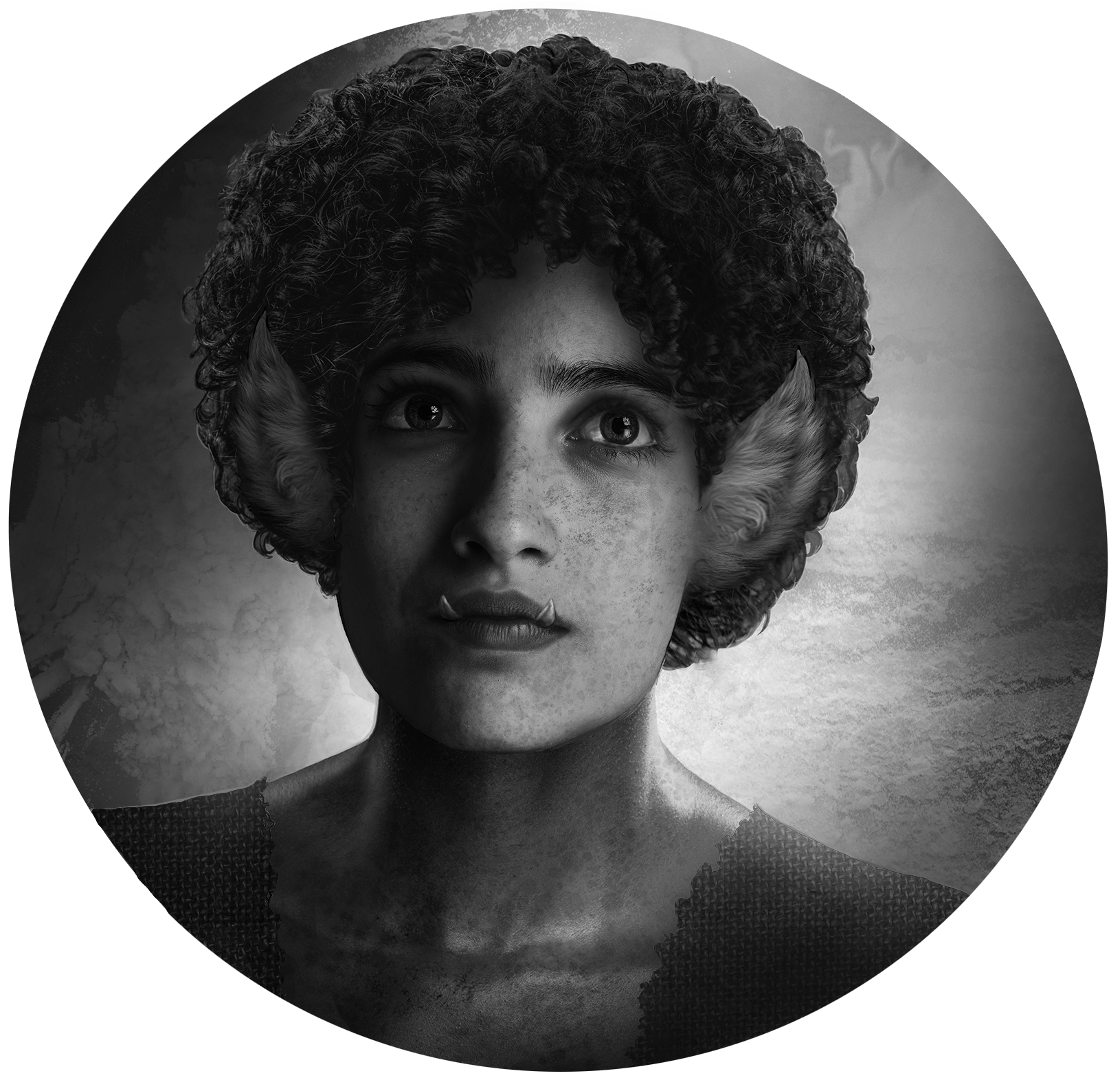On character dynamics in TIS, and designing relationship-building mechanics a little outside the box~
Hey all, our bimonthly dev log is coming at you a little early today, as yours truly plans to be out in the wilderness this weekend, without much in the way of a wifi connection. As promised, you'll be getting some insight into how character interaction in The Inverted Spire (TIS) diverges from a traditional visual novel (VN) structure, and why it functions the way it does!
So let's get started—

In a more traditional VN, it's common that if you have branching paths at all, they're tied to romancing particular characters. Your outcomes change depending on which characters you are most consistently friendly (or flirtatious) with. The player often goes into a game like this with character profiles highlighting potential romance options ahead of time. They may be targeted at different sexualities, and have varying degrees of sexual or romantic content, but typically set the same expectations: make the right choices, and you get the object of your desire.
Regardless of what other plotlines may be weaved through the overall narrative of the game, this is the player's primary focus. There may even be a collect-them-all incentive, where the player receives rewards in the form of true endings, or other unlockable content, if they attempt multiple romance paths successfully.
Of course, not all branching VNs play out like this. Some aren't tied to particular characters at all. Many place romance as secondary to a robust mystery, or other kind of storyline, where only correct choices bring success. And success, in this case, is measured by more content and increasingly more satisfying endings.
TIS is a little more like the latter, in that your choices determine the direction of the overall story—but they do so in a very character-driven way. The player's outcomes are ultimately decided by a combination of factors, including evolving beliefs and character relationships over time. Without giving too much away, let's have a closer look at how that works:
(Obligatory disclaimer: this deconstruction is not at all intended as a criticism of more traditional VN branching structures, which are frequently used to great effect!)
1—The player's beliefs.

TIS is set in a totalitarian, guild-based society of mages with a deeply entrenched social credit system. Every character is raised from an early age with the idea that New Order is the only rational alternative to the violent and bloody past of their Old Order ancestors. After all, how else does one establish relative equity and prosperity in a society of magical goblins?
Unfortunately, you ended up in the Spire precisely because New Order isn't quite working for you.
Do you believe yourself to be a glitch in an otherwise functional system? Is it that the system itself, while good in concept, has been corrupted by internal and external influences that need to be wiped clean? Perhaps it was never a just or good system after all, and your inability to live as a productive New Order citizen is part of an intentional design that discards unfitting candidates?
TIS offers many choices to forge your own attitude towards the philosophies that New Order is based on, and evaluates each one (just like the mysterious New Order Equation) on competing scales of "Compliance" and "Dissidence."
Your fellow wards of the Spire expedition also have their own perspectives on the rules and social mores you were raised in. Their perception of you and your choices will vary based on your Compliance and Dissidence scores over time.
These decisions will also shape your character's evolving personality. In key moments where there is no time to think, or a chance to act on sheer impulse, the result of your decisions over time will influence the protagonist's behaviour, and this, in turn, will also affect the way other characters perceive you .
2—The player's interaction choices.

As the narrative of TIS unfolds, you will find yourself in near-constant contact with your fellow Expedition wards. At such close quarters, and in such dire circumstances, your every word and action is being closely watched by six very different people.
After all, their survival may depend on it!
Other characters will both judge your actions in the moment, and begin to form a more long-lasting impression of you over time.
The player can see how the attitudes of the other six change based on each decision they make in real time, in the form of on-screen "trust bars." Certain actions will affect the perspectives of some characters more significantly than others. Similarly, characters will respond to similar actions differently. Some like to have their motives and beliefs questioned, while others don't. Some will take a compliment with enthusiasm, while others will find it suspicious. And let's be honest—very few like to have somebody else actively reading their thoughts, or plumbing the depths of their darkest memories, but you may need to do that too.
This is perhaps the place where TIS diverges most significantly from the traditional VN branching structure.
If you wish to reach the bottom of the Spire, you cannot please one character at the expense of all the rest. And since every action you take is being evaluated by others, character interaction becomes a delicate balancing act. Even if you do have a favourite character, you will inevitably sometimes have to make choices they dislike.
Some choices are so significant to your relationship with a particular character, that they will act as a status effect, altering how they might otherwise perceive your decisions. A character who has grown to respect you will be less judgmental of decisions they might otherwise disagree with, and more appreciative of those they like, while a character who is particularly angry with you will see all your decisions in a more negative light. Undoing these status effects takes time and consistent effort.
At key junctures in the story, characters will also make a mental note of how much they like you so far. Trust bar fluctuations are inevitable, but these deeper judgements will only make themselves known at a later point, perhaps when you finally catch them alone.
So can I still romance my favourite characters?

Short answer: Yes!
Long answer: Romance in TIS is optional, but entirely viable. In fact, even romance in TIS looks a little different from a more traditional VN!
Independent of the emergence of New Order, goblins have no concept of gender or gender-based sexuality. In their case, this means they also lack a concept of monogamy.
There are no dyadic goblin marriages. New Order is not built around the existence of traditional family structures. Goblin infants only remain with their biological parents for a year or so before being assigned guardians within a tiered academy system, which in turn prepares them for mentors and apprenticeships within the tiered system of their guild.
TIS Goblins do still form close, meaningful bonds, but a moral obligation to save the romantic and sexual dimensions of a relationship for a single special someone simply aren't an idea they're familiar with.
This means you may very well pursue all manner of relationships with different goblins at once. They may be friends, lovers or enemies. The rest of the cast will also pursue relationships with one another, in ways that may or may not depend on your choices as the player.
So yes, you can romance individual characters, but keep in mind those character may also develop similar relationships with others. You may need to not only negotiate your relationship with your personal favourite character, but their favourite characters as well!
Of course, context is important here. You are surrounded by fellow Correction Camp survivors on a deadly Expedition that killed everyone who came before you. Tensions are high, and the goblins who accompany you ended up here precisely because they (like the protagonist) had trouble getting along with others in the world above.
Under such desperate circumstances, is romance the right choice for you at all?
Is it nothing more than a momentary respite from the horrors of the Spire? Will it compromise you in ways that will ultimately lead to your demise, or strengthen your resolve in the face of hardship?
Fair enough, but who are my options anyway?

Now that you have some idea of how relationship-building works in TIS, you may be wondering who it is you're dealing with. Let's have some introductions, while keeping spoilers to a minimum.
V_____ I____/ONE

What are they like?
The protagonist of our story. ONE is a Mentalist who spiraled into an increasingly more lonely, hermetic existence as they felt their connection to the world around them waning. They turned themselves in to the Bureau of Service and volunteered for the Spire in the hopes of finding a sense of purpose, preferably before death. As for what they're really like, who they become and whether they ever achieve their initial goal—that's all up to you!
B_____ E___/TWO

What are they like?
Thoughtful and even-tempered, TWO has clearly devoted a lot of time to formulating theories about the conspiracy at the heart of New Order. But they don’t seem to have a lot to say about their own past, or why the Security Bureau thought a simple bureaucrat was dangerous enough to be locked away for life.
How do I get on their good side?
Don't take the status quo for granted. Ask hard questions about the world around you, even if it means uncovering an unsightly truth. But don't get personal, and don't go so far as to antagonize others or start unnecessary conflict.
M____ R____/THREE

What are they like?
Bold, theatrical and unapologetically opposed to everything New Order stands for—it’s not hard to see how THREE ended up on a one-way trip to the Spire. They have a vivid sense of humour. No topic is safe from becoming a joke, even when it comes to their own life. They may act like they’ve got nothing to hide, but is that really true?
How do I get on their good side?
Take risks. Commit to daring choices (The more outlandish, the better!) Stand up to attempts at reconstructing New Order tyranny and power dynamics from the surface world here among your fellow wards in the Spire.
R____ N____/FOUR

What are they like?
Stern and pragmatic, if a little absent-minded, FOUR appears to be the embodiment of a conscientious New Order citizen. But everybody slips up a little sometimes, right? And FOUR can tell you all about the loopholes that let them get around those inconvenient little restrictions, until they slipped a little too far, too fast. They're only quiet until you get them talking about their favourite topics. But even sitting with their mouth shut, their imposing size makes them very hard to ignore.
How do I get on their good side?
Put survival first. Do what needs to be done, even if it's a hard choice to make. Understand that the status quo may not be perfect, but it is the way it is for a reason.
Y____ M___/FIVE

What are they like?
FIVE comes across as self-assured, and almost painfully high-strung. They want everyone to get through this alive—assuming the everyone in question is as committed to the idea of redemption as they are. It’s hard to imagine how such an unabashedly patriotic goblin could run afoul of the algorithm that governs New Order. What awful mistake could they have made, and are they really as much of a true believer as they claim?
How do I get on their good side?
Demonstrate a commitment to redeeming yourself before New Order. Put the needs of the group before your own. Be firm, but understanding.
C_____ P______/SIX

What are they like?
SIX is remarkably collected, given your shared circumstances. Their calm tone exudes an aura of competence and absolute authority. It seems as though they've always got something important to say, and they show no hesitation when it comes to calling others on their bullshit. Nothing about their appearance or demeanor seems especially threatening, so why is it that catching their eye sends an odd chill up your spine?
How do I get on their good side?
Don't commit to any cause but your own. Be observant. Make useful observations. Understand that you're not here to make friends, even if you act like it. Use your power to take control of the situation. Stay adaptable.
M____ S___/SEVEN

What are they like?
I’s hard to picture frail, sentimental SEVEN as any kind of hardened dissident. When they're not struggling to hold themselves together, they seem to do everything they can to blend in and avoid attention. Occasionally, you may catch a glimpse of someone tougher and more tired, lurking just underneath the surface. Does that make their supposed frailty an act? And if so, why pretend at all?
How do I get on their good side?
Make decisions that keep the peace between your fellow wards at all costs. Don't pry into personal matters or interrogate others about their beliefs unless it's absolutely necessary. Remain optimistic, even in the face of unimaginable horrors.
So what's next?

You'll be hearing from us again on August 15th!
Next time, we'll be giving a little more insight into the protagonist's Mentalist powers, and how you can them for good or ill. You'll also get a preview of what the new mind-reading sequences look like, and how they are unique to each character.
If you've read this far, we'd love to hear your thoughts on how we approach relationships in TIS (or maybe how you feel about relationship-building in VNs in general?) We'd also love to hear what you think of our characters so far. Opinions and predictions are, as always, welcome <3

